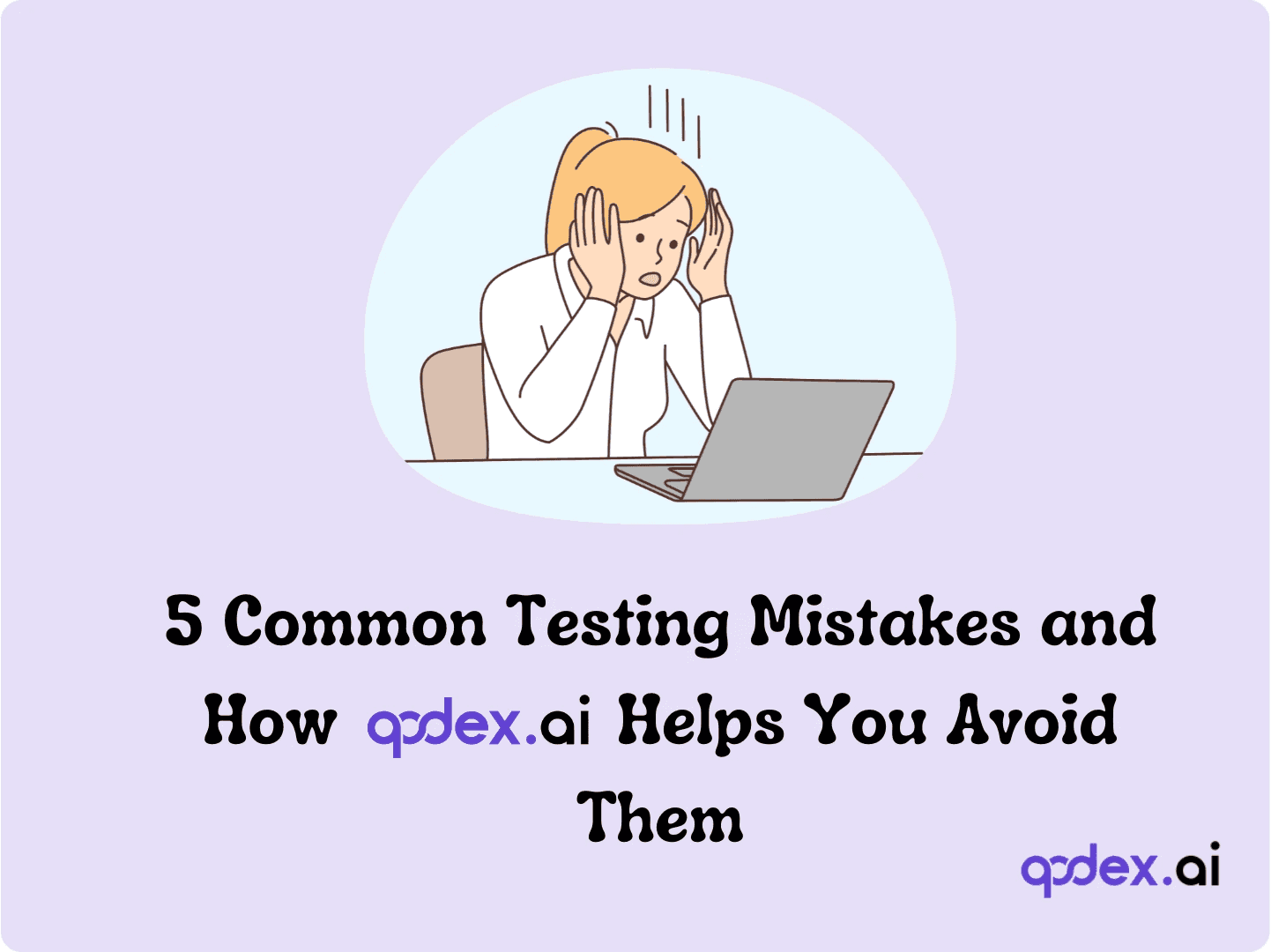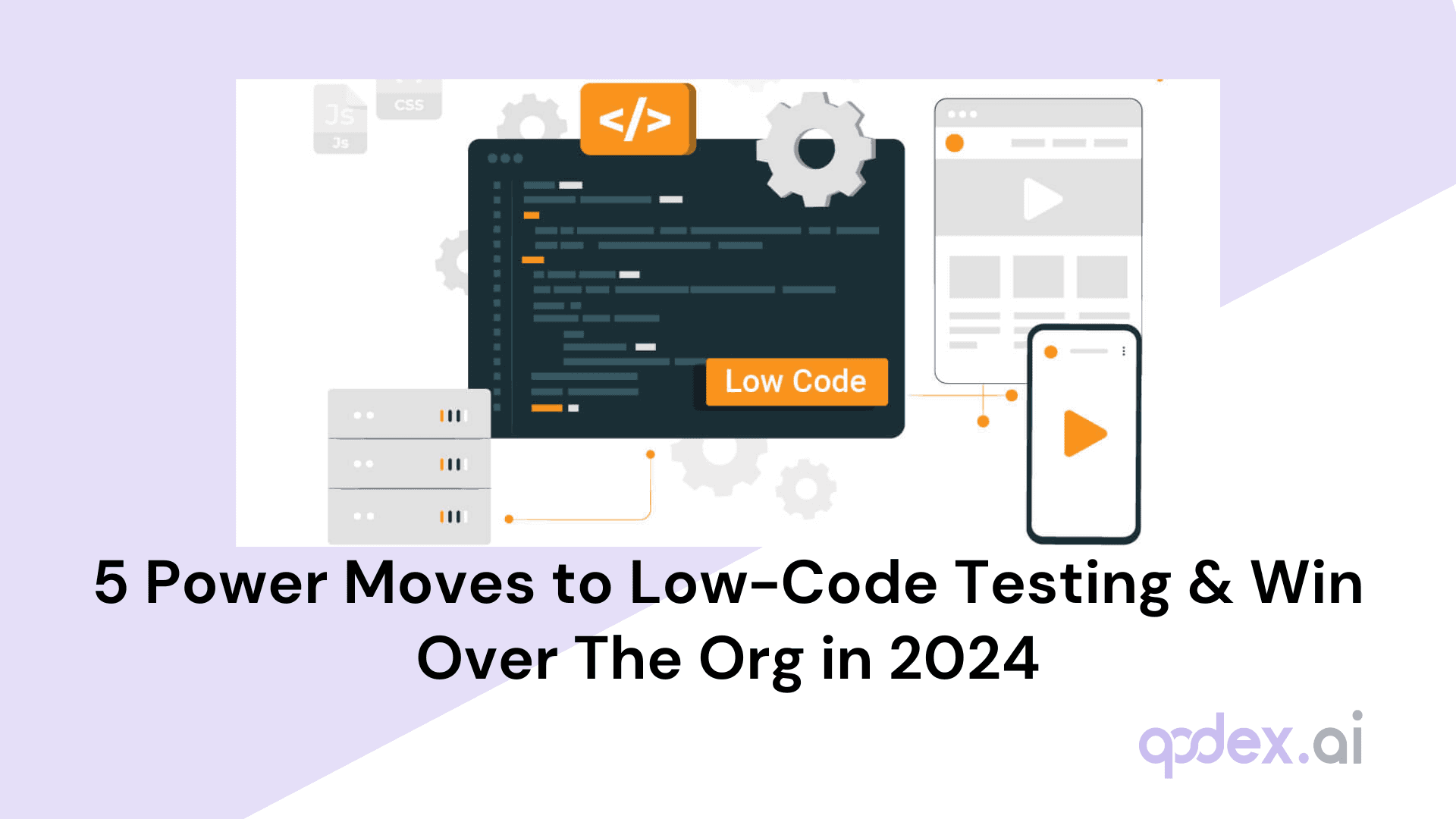Create Test Data WIth AI | QA Test Data Generation
Introduction
In the fast-paced world of software development, ensuring the quality and reliability of applications is more critical than ever. Central to achieving this goal is the generation and management of high-quality test data. Test data is the foundation of effective software testing, enabling developers and quality assurance teams to validate functionality, ensure data integrity, stress-test systems, and enhance security. However, traditional methods of test data generation have been plagued by numerous challenges, including time-consuming manual processes, data privacy concerns, and scalability issues.
As software applications grow increasingly complex, these challenges have become even more pronounced, leading to compromised testing quality and increased risks of software defects. Enter Artificial Intelligence (AI). AI is now emerging as a game-changing force in the realm of test data, offering innovative solutions to these longstanding challenges and revolutionizing the way we approach software testing.
In this blog, we'll explore the transformative impact of AI on test data generation and management, and how it is reshaping the future of software development.
Understanding AI in Test Data Generation
Artificial Intelligence (AI) is transforming how test data is created and managed in software testing. By leveraging advanced algorithms and machine learning techniques, AI-driven test data generation offers a smarter, faster, and more efficient way to ensure software quality. Let’s break down how AI is reshaping this crucial aspect of software testing.
What is AI-Driven Test Data Generation?
AI in test data generation involves using sophisticated algorithms to automate the creation, manipulation, and management of data sets used in software testing. Several types of AI are particularly relevant:
Machine Learning (ML): ML algorithms analyze existing data patterns to generate new, realistic test data. This is crucial for simulating real-world scenarios.
Natural Language Processing (NLP): NLP helps generate human-readable text data, essential for testing applications that rely on textual input or output.
Generative Adversarial Networks (GANs): GANs create synthetic data that closely mimics real-world data, providing diverse test scenarios.
Reinforcement Learning: This AI technique optimizes test data generation over time, learning from past test results to improve future data sets.
How AI Generates Test Data
AI generates test data through a structured process designed to ensure high quality and relevance. It begins with data analysis, where AI examines existing data sets or system specifications to understand the required data's structure, patterns, and constraints. Following this, machine learning algorithms perform pattern recognition, identifying complex relationships within the data that might not be immediately apparent to human testers. Based on these recognized patterns, AI then synthesizes new data points, ensuring they comply with established rules and constraints. This generated data is subsequently validated against predefined criteria to ensure its accuracy and relevance. Finally, through iterative refinement using reinforcement learning, AI continuously improves its data generation process by incorporating feedback from test outcomes, leading to increasingly effective test data over time.
By integrating AI into test data generation, organizations can enhance their testing processes, resulting in higher software quality, faster development cycles, and reduced costs. However, successful implementation requires careful planning, the right tools, and often a shift in testing methodologies to fully leverage AI’s capabilities.
AI's Transformative Impact on Test Data Management
Artificial Intelligence (AI) is dramatically improving how we manage test data throughout the software development lifecycle. In this section, we’ll explore how AI enhances data management through automated classification, intelligent data masking, and dynamic updates.
Automated Data Classification and Organization
AI brings a new level of efficiency to test data management. Here’s how:
Intelligent Categorization: AI algorithms automatically sort test data based on criteria like data type, usage scenario, or relevance to specific test cases. This saves time and reduces manual effort.
Pattern-Based Organization: Machine learning models detect patterns in test data, helping to organize it in ways that make it easier to find and use. This results in a more streamlined testing process.
Metadata Generation: AI generates and manages metadata for test datasets, which improves how easily you can search for and understand data. This adds context and makes data more accessible.
Dynamic Tagging: As test data evolves, AI adjusts tags and classifications to keep everything relevant and accurate. This ensures that data remains correctly categorized as requirements change.
Intelligent Data Masking and Anonymization
Protecting sensitive information is crucial, and AI enhances data masking and anonymization with:
Context-Aware Masking: AI understands the context of the data it processes, applying masking techniques that keep data useful while ensuring privacy. This balances usability with confidentiality.
Synthetic Data Generation: Instead of just masking data, AI can create synthetic data that looks real but doesn’t pose privacy risks. This maintains the statistical properties needed for effective testing.
Consistency Across Datasets: AI ensures that masked or anonymized data is consistent across related datasets, maintaining integrity and reliability in your tests.
Adaptive Anonymization: AI can adapt its anonymization techniques to comply with evolving privacy regulations and specific needs. This helps keep your data handling compliant and effective.
Dynamic Updating of Test Data Sets
AI keeps test data relevant and current through:
Continuous Learning: AI monitors production data trends and updates test datasets to reflect real-world conditions. This keeps your data aligned with current scenarios.
Intelligent Refresh: Instead of updating everything, AI selectively refreshes parts of test datasets that have become outdated. This targeted approach ensures data relevance without disrupting ongoing work.
Version Control: AI systems manage multiple versions of test datasets, allowing easy switching between different data states or scenarios. This supports thorough testing across various conditions.
Predictive Updates: By analyzing development trends, AI can generate or update test data in anticipation of future needs. This proactive approach prepares you for upcoming changes.
Automated Validation: AI performs automated checks as datasets are updated to catch any inconsistencies or errors. This helps maintain data quality and reliability.
AI is transforming test data management by addressing long-standing challenges and introducing new capabilities. This shift enables teams to enhance software quality, efficiency, and reliability. In future discussions, we will explore practical applications, emerging challenges, and future trends in AI-driven test data management.
Key Advantages of AI-Driven Test Data
The integration of AI into test data processes transforms software testing, offering a range of benefits that enhance quality and efficiency. Here’s a closer look at how AI-driven test data can significantly improve your testing practices.
A. Enhanced Test Coverage and Quality
AI-driven test data ensures more comprehensive and precise testing. AI can generate data that covers a broad spectrum of scenarios, including rare edge cases and complex interactions that human testers might overlook. By analyzing patterns in existing data, AI identifies and creates test cases for intricate system behaviors. This includes intelligently addressing boundary conditions and generating negative test cases to strengthen system robustness. Moreover, AI maintains consistency across test executions, reducing result variability and enhancing the reliability of quality assessments. Over time, AI systems use machine learning to refine and optimize test data based on historical defect patterns, continuously improving test coverage and quality.
B. Time and Cost Efficiency
Adopting AI in test data management leads to significant time and cost savings. AI can quickly generate large volumes of test data, dramatically reducing preparation time compared to manual methods. By automating data creation and management, AI allows testers to focus on more complex tasks, accelerating the overall testing process. The availability of high-quality test data speeds up testing cycles, while AI’s ability to automatically update and maintain datasets lowers ongoing maintenance costs. Additionally, improved test coverage helps catch defects earlier, reducing the expense of fixing bugs in later stages or production.
C. Enhanced Data Relevance and Realism
AI enhances the relevance and realism of test data by closely mimicking production environments. By analyzing production data patterns, AI generates test data that accurately reflects real-world scenarios. This dynamic approach ensures that test data remains relevant as production environments change. AI also tailors data to specific testing needs, such as locale-specific data for international applications, and maintains the integrity of data relationships in complex systems. For privacy compliance, AI creates synthetic data that preserves the statistical properties of real data without exposing sensitive information.
D. Scalability for Large and Complex Systems
AI-driven test data solutions offer unmatched scalability, crucial for managing large and complex systems. AI efficiently handles big data applications, scaling to volumes that manual methods struggle with. As systems grow more intricate, AI adapts its data generation strategies to accommodate new features and integrations. It provides consistent test data across multiple platforms and environments, facilitating thorough testing of distributed systems. AI also supports performance and load testing by generating large-scale data sets and offers diverse, relevant test data for microservices and APIs while maintaining overall system consistency. In continuous integration and deployment (CI/CD) pipelines, AI keeps pace with rapid development cycles, delivering fresh, relevant test data for each iteration.
Challenges and Considerations in AI-Driven Test Data Solutions
While AI-driven test data solutions offer significant advantages, their implementation comes with challenges that organizations need to address to maximize benefits. Here are the key challenges and considerations when adopting AI for test data management:
A. Data Privacy and Security Concerns
AI systems require access to large datasets to generate realistic test data, raising concerns about data privacy and security.
Sensitive Data Exposure: AI models can unintentionally expose sensitive information from training data. To mitigate this, organizations should implement robust data anonymization techniques and rely on synthetic data to avoid using real, sensitive data.
Compliance with Data Protection Regulations: Ensuring AI-generated test data complies with regulations like GDPR and CCPA is crucial. Developing AI models with privacy-by-design principles and regularly auditing data for compliance can help meet these standards.
Data Access Control: Managing access to AI systems and the data they use is vital. Strict access controls, encryption, and regular monitoring are essential to protect sensitive data.
AI Model Security: AI models themselves need protection from tampering or theft, as they might reveal system vulnerabilities. Organizations should secure AI models with encryption, access controls, and periodic security audits.
Data Retention and Disposal: Properly managing the lifecycle of AI-generated test data, including secure disposal, is critical. Implementing automated data lifecycle management processes can ensure compliance with data retention policies.
B. Integration with Existing Testing Frameworks
Integrating AI-driven test data solutions with current testing environments can pose several challenges.
Compatibility Issues: AI tools must work seamlessly with existing testing frameworks, CI/CD pipelines, and development tools. A phased integration approach can help minimize disruptions while assessing compatibility thoroughly.
Performance Overhead: AI data generation can introduce latency or consume significant resources. Optimizing AI models for performance and considering distributed computing can mitigate these concerns.
Versioning and Reproducibility: Maintaining consistency between AI-generated test data and specific software versions is challenging. Implementing robust versioning practices for AI models and datasets ensures reproducibility of test conditions.
Balancing Automated and Manual Testing: Finding the right balance between AI-driven and traditional testing is essential. A hybrid strategy, where AI handles repetitive tasks and manual oversight focuses on critical areas, can be effective.
Tool Chain Integration: Integrating AI tools with existing DevOps and testing toolchains can be complex. Choosing AI solutions with robust APIs or developing custom integrations is key to a smooth transition.
C. Skill Requirements for AI-Driven Test Data Solutions
Adopting AI in test data management requires specific skill sets and knowledge areas.
AI and Machine Learning Expertise: Many testing teams may lack the AI/ML expertise needed to implement these systems. Investing in training programs or partnering with AI specialists can help build internal capabilities.
Data Science Skills: Understanding data patterns, statistical analysis, and data modeling is crucial for effective AI-driven testing. Upskilling team members or hiring data scientists can provide the necessary support.
Ethical AI Knowledge: Ensuring AI is used ethically to generate fair and unbiased test data is important. Developing guidelines for ethical AI use and providing training can help maintain integrity.
Interdisciplinary Collaboration: Bridging the gap between AI experts, data scientists, and traditional software testers is often a challenge. Fostering a collaborative culture with cross-functional teams can leverage diverse expertise.
Continuous Learning: Keeping up with rapidly evolving AI technologies and best practices is essential. Establishing continuous learning programs and participating in AI and testing communities can keep teams up to date.
Conclusion
The integration of AI into test data generation and management marks a transformative shift in software quality assurance. By enhancing test coverage, improving efficiency, and ensuring data relevance, AI-driven solutions address longstanding challenges in software testing. While implementation hurdles exist, the benefits far outweigh the challenges. As AI technology continues to evolve, its role in test data processes will only grow, enabling organizations to deliver higher-quality software faster and more cost-effectively. Embracing AI in test data management is not just an option, but a necessity for staying competitive in the rapidly advancing world of software development.
Frequently Asked Questions
Why should you choose Qodex.ai?
Qodex.ai simplifies and accelerates the API testing process by leveraging AI-powered tools and automation. Here's why it stands out:
- AI-Powered Automation
Achieve 100% API testing automation without writing a single line of code. Qodex.ai’s cutting-edge AI reduces manual effort, delivering unmatched efficiency and precision.
- User-Friendly Platform
Effortlessly import API collections from Postman, Swagger, or application logs and begin testing in minutes. No steep learning curves or technical expertise required.
- Customizable Test Scenarios
Whether you’re using AI-assisted test generation or creating test cases manually, Qodex.ai adapts to your needs. Build robust scenarios tailored to your project requirements.
- Real-Time Monitoring and Reporting
Gain instant insights into API health, test success rates, and performance metrics. Our integrated dashboards ensure you’re always in control, identifying and addressing issues early.
- Scalable Collaboration Tools
Designed for teams of all sizes, Qodex.ai offers test plans, suites, and documentation that foster seamless collaboration. Perfect for startups, enterprises, and microservices architecture.
- Cost and Time Efficiency
Save time and resources by eliminating manual testing overhead. With Qodex.ai’s automation, you can focus on innovation while cutting operational costs.
- Continuous Integration/Delivery (CI/CD) Compatibility
Easily integrate Qodex.ai into your CI/CD pipelines to ensure consistent, automated testing throughout your development lifecycle.
How can I validate an email address using Python regex?
You can use the following regex pattern to validate an email address: ^[a-zA-Z0-9._%+-]+@[a-zA-Z0-9.-]+\.[a-zA-Z]{2,}$
What is Go Regex Tester?
Go Regex Tester is a specialized tool for developers to test and debug regular expressions in the Go programming environment. It offers real-time evaluation of regex patterns, aiding in efficient pattern development and troubleshooting
Discover, Test, & Secure your APIs 10x Faster than before
Auto-discover every endpoint, generate functional & security tests (OWASP Top 10), auto-heal as code changes, and run in CI/CD - no code needed.
Related Blogs


